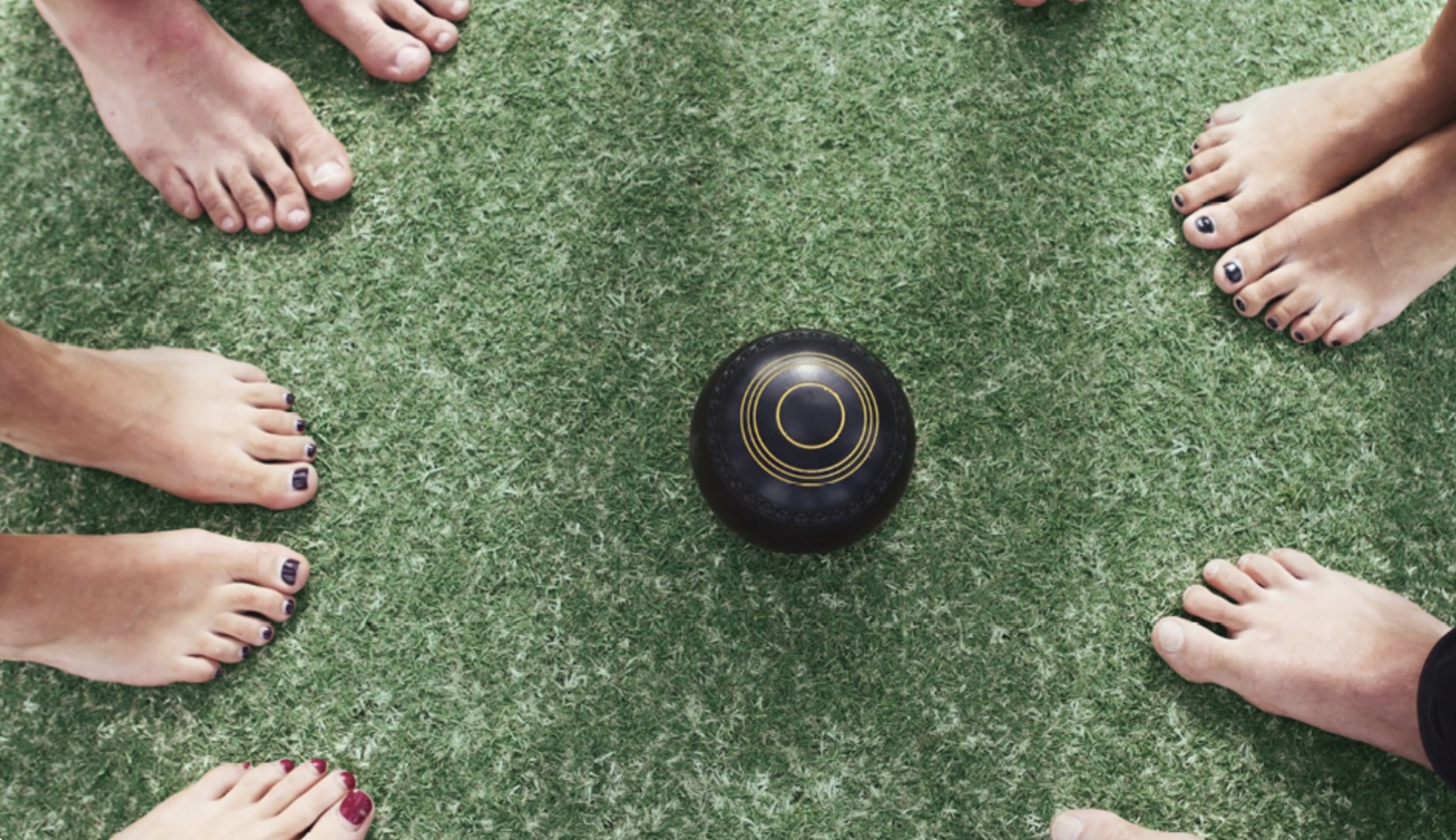The Secret To Achieving That Perfect Bowling Green Look

29 September 2021
Written By An LSA Sports Turf Expert
Bowling Greens
Have you ever wondered how bowling green grass is maintained? Or have you wanted to create your own bowling green look in your garden? Well, here’s how it’s done…
What grass is used on bowling greens?
Over the years bowling green surfaces have changed, but today the majority are Tifdwarf couch. Tifdwarf was bred by The University of Georgia in Tifton and have bred world-renowned ‘Tif’ couch grasses like TifTuf Hybrid Bermuda and TifEagle. Tifdwarf is a fine leaf hybrid variety first brought into Australia around 50 years ago. It is a popular turf variety that is used across many sporting surfaces including golf putting greens, tennis courts, croquet courts, and bowling greens. Tifdwarf has a good drought, heat, and shade tolerance can be mown low and tolerates heavy traffic. It has good rooting capabilities and tolerance for close mowing. Tifdwarf has a soft leaf with few seed heads making it an ideal choice for playing surfaces.
There are also now a range of new greens grade zoysia varieties in the early release stage including Primo Zoysia and Trinity Zoysia. These turf varieties are specifically bred for golf course greens and tees, both holding a dense growth habit.
Bowling green construction
Most bowling greens are 38m x 38m and constructed on a gravel base, with parallel drainage and at least 300-400mm of suitable sand growing profile. Each profile is carefully levelled with a final laser level on the surface. This helps ensure the playing surface has a billiard table flatness.
Planting of a bowling green
Bowling greens are planted using sprigs that are evenly disturbed across the surface. On average 400kg of sprigs is used to cover the 38m x 38m area. Depending on growing conditions and nutrient inputs from planting to first playing, the establishment could vary from around 8 to 14 weeks.
Bowling green mowing
Once covered, the fun of preparation and maintaining the green starts. Most bowling clubs use a Queen mower or the newer models from Aus Turf Machinery (ATM). These mowers are electric and have a 30’’ cut and can cut down as low as a thickness of a 5-cent piece. The important part of bowling green maintenance is the surface. Less thatch and tighter the surface, the faster the ball rolls for the players.
Regular grooming during the growing months removes thatch build-up and encourages new leaves to form on the surface, mowing is completed daily and, in some cases, double-cut or twice a day. The cutting height can vary from the thickness of a 5-cent piece to a 20-cent piece. The secret in turf management is when removing grass or thatch it needs to be replaced with a new leaf. So small amounts of liquid fertiliser regularly are the standard application.
Maintenance
To keep bowling greens in top condition, they are normally renovated annually. This renovation process involves scarifying, aerating, fertilising, and top dressing the green. When this happens on the bowling greens, the bowlers will have a break for a 6-to-8-week period while this spring renovation work is carried out.
Achieving the ‘bowling green look’ at home
The secret to bowling green grass is regular mowing with a cylinder mower, grooming or dethatching, and small regular amounts of fertiliser. Like bowling greens and other sporting surfaces, regular maintenance is key.
TifTuf Hybrid Bermuda can deliver similar results to Tifdwarf in the backyard when regularly maintained. TifTuf can be mown as low as 10mm, resulting in a similar finish. It has a dense growth and fine leaf blade, ideal for being mown low regularly.
TifTuf Hybrid Bermuda is the latest in turf technology out of the Tifton Campus at the University of Georgia. The Tifton campus is home to the same turf breeding program facility that has developed Tifdwarf and other turf varieties including TifEagle, TifGreen, TifSport, TifWay… the list goes on! The Tifton Campus is continually working to breed the best grasses to be used both domestically and on the sporting field.
Sir Grange Zoysia is another great choice when it comes to low mowing. It too has a dense growth habit but can hold a stunning dark green colour. Sir Grange does have a slower growth rate, but this does reduce the number of times your lawn needs to be mown. Sir Grange can be mown as short as 10mm to unmown, looking great cut at any length!
With regular maintenance and the right turf variety, you too can achieve that perfect bowling green finish for your lawn.
As always, if you have any more questions please don’t hesitate to contact us for free expert advice on 1800ALLTURF (1800255873) or 07 5543 8304.
WOULD YOU LIKE MORE INFORMATION?
Contact us for expert advice, or come & say hi at our office in Tamborine!


